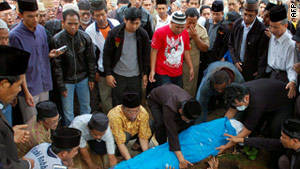By: Jessica Ties
Impunity Watch, Asia
ISLAMABAD, Pakistan – Pakistani security forces are holding and torturing political activists in the Pakistani province of Balochistan in an attempt to derail the separatist movement in that region.

Human Rights Watch Asia Director Brad Adams has stated that “Pakistan’s security forces are engaging in an abusive free-for-all in Balochistan as Baloch nationalists and suspected militants ‘disappear’ and in many cases are executed…the national government has done little to end the carnage in Balochistan, calling into question its willingness or ability to control the military and intelligence agencies.”
The Pakistani government has cracked down on the separatist movement in Balochistan since 2004 when rebels emerged to demand autonomy and a share of the profits from the region’s oil, gas and mineral sources. As a result, those who “disappear” are generally Baloch nationalist activists or suspected Baloch militants.
In a 132 page report by Human Rights Watch, “We Can Torture, Kill, or Keep You for Years: Enforced disappearances by Pakistan Security Forces in Balochistan”, it is stated that the government is responsible for most of the abductions and detainees are rarely, if ever, charged with any crime.
The report is comprised of over 100 interviews with former detainees, witnesses, lawyers, family of the “disappeared” and local human rights activists.
While the exact number of enforced disappearances is unknown Human Rights Watch reported that in 2008 Interior Minister Rehman Malik said at least 1,000 victims had disappeared in Balochistan. There is increasing evidence to suggest that many of those who have disappeared have suffered extrajudicial execution while in the custody of the government.
One former detainee, Mazhar Khan, described his abduction from a friend’s home in 2009 when armed men stormed into the home blindfolded both men and drove them to separate locations. Khan was questioned about the Baloch party and then held alone in a dark room for two months before being released on the side of a road. The fate of his friend is still unknown.
Another former detainee, Bashir Azeem, was detained on three separate occasions between 2005 and 2009. He states that on one occasion his abductors “pushed pins under my nails, put a chair on my back and sat on top of it, and put me for 48 hours into a room where I could only stand but not move. When they took me out, my legs were so swollen that I collapsed on the floor and fainted.”
In some cases witnesses alleged that the detainers wore the same uniformed donned by members of various Pakistani intelligence agencies. The arresting agency never identified themselves or informed the detainee of the basis for their arrest. Often, the abductors would beat, handcuff, blindfold and then drag the detainee into a vehicle before taking them to an unknown location. In each and every case investigated by Human Rights Watch, detainees who were released and their relatives reported torture and ill treatment while detained. Torture often included beatings with sticks or leather belts, hanging detainees upside down and prolonged sleep and food deprivation.
For more information, please see:
AFP – Pakistan Accused Over Separatists who ‘Disappear’ – 28 July 2011
BBC News – Pakistan Torturing Balochistan Activists, Report Says – 28 July 2011
Human Rights watch – Pakistan: Security Forces ‘Disappear’ Opponents in Balochistan – 28 July 2011
MSNBC – HRW: ‘Disappeared’ Still Haunt Pakistani Province – 28 July 2011


